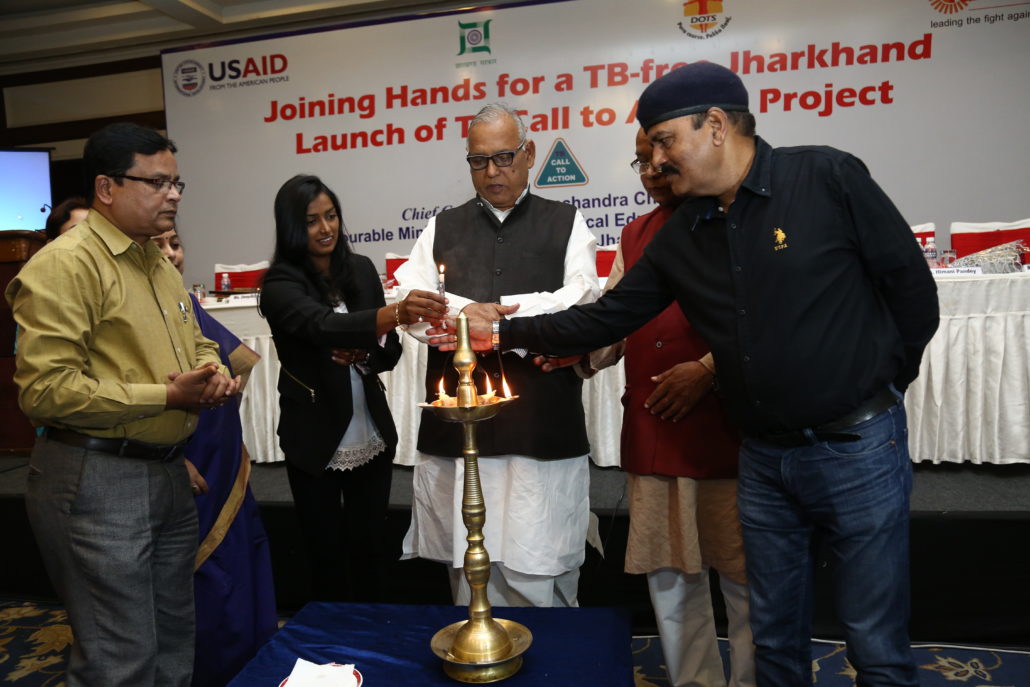Daily Regimen for TB rolled out in Bihar
Patna, February 15, 2017: The Bihar State TB Cell rolled out the Daily Regimen for Tuberculosis in the state today. The Revised National TB Control Programme (RNTCP) has introduced the daily drug regimen, which will be implemented in 104 districts in five states including Bihar, Himachal Pradesh, Sikkim, Maharashtra and Kerala in the first phase. Patients with drug-sensitive TB will now receive a daily dose instead of the previous alternate day regimen.
The launch event, organized by REACH (Resource Group for Education and Advocacy for Community Health) in collaboration with the State TB Cell, saw the participation of key government dignitaries. Shri Shashi Bhushan Kumar, I.A.S, Executive Director (NHM), State Health Society, Bihar graced the event as the Chief Guest. He administered the first dose for three TB patients at the launch, and spoke about the shift in regimen. “The new drugs would be available with all government as well as private providers. The officials should ensure proper implementation of the programme at the district and sub-district levels,” he said, requesting patients to adhere to the treatment and take their medicine daily till the treatment is complete.
Speaking on the occasion, Dr KN Sahai, State Program Officer (TB), Bihar TB Cell said that the roll out of the Daily Drug Regimen would ensure provision of the same medicines in the private and the public health sectors. “We are introducing this regimen so that there is no difference between private and government sector treatments and patients getting treated in the government sector do not feel that the medicines in the private sector are better,” said Dr Sahai. He also announced that provision of ‘family DOTS’ would be made in the state, which will give patients the choice to opt for a family member as their treatment supervisor. He added that district magistrates have been given the responsibility to launch the first phase of the project in their districts in order to create awareness about the new regimen.
Indira Gandhi Institute of Medical Sciences (IGIMS) will be supporting the implementation of the Daily Drug Regimen for TB in Bihar. Dr SK Shahi, HoD, Microbiology, IGIMS, outlined the role of the medical college in the roll out.
With over 1,300 deaths per day, TB continues to be a grave public health crisis in India. According to the Global TB Report, 2016, it is estimated that there are 2.8 million new (incidence) cases of TB. Bihar reports around 70,000 new cases of TB every year.
The programme was attended by representatives by REACH, World Health Partners, Innovators in Health, PSI, Project Axshya partners. Ms Bushra Azim, State IEC Officer, Bihar State TB Cell, was also present at the launch event held at IGIMS, Patna.


